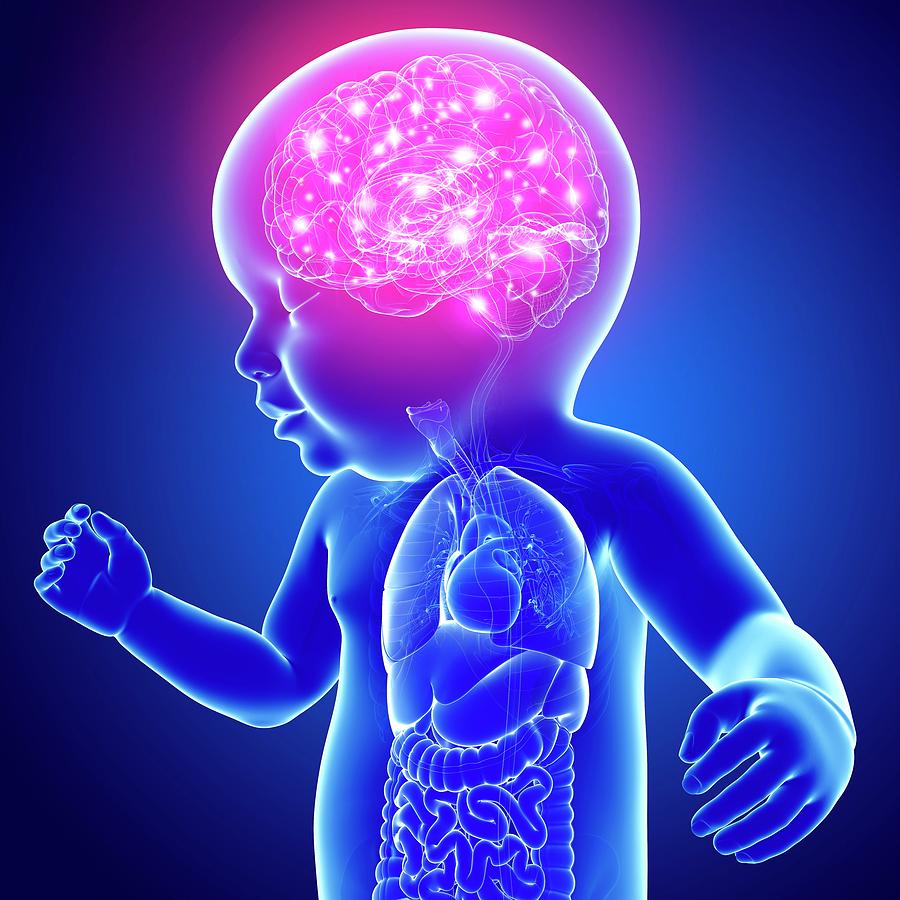 Source: bing.com
Source: bing.comBabies are born with a blank slate ready to learn and grow. Their brains are like sponges, ready to soak up the world around them. As they experience new things, their brains begin to develop and form connections that will shape their future. In this article, we will explore the various stages of brain development in babies and what you can do to help your little one reach their full potential.
Table of Contents
The First Year
The first year of a baby’s life is a critical time for brain development. During this time, their brains develop at a rapid pace. By the time they are one year old, their brain will have grown to 70% of its adult size. During this period, babies learn through their senses. They use their eyes, ears, nose, mouth, and sense of touch to explore the world around them.
One of the most critical factors in brain development during the first year is the quality of interaction between the baby and their caregiver. Babies who receive lots of love, attention, and interaction have been shown to have better brain development than those who do not. Talking, singing, and reading to your baby can also help to stimulate their brain and improve their language development.
Second Year
During the second year of life, the brain continues to develop rapidly. The connections between brain cells strengthen, allowing for more complex learning and understanding. At this stage, babies begin to understand cause and effect and can form mental images of objects and events. They also begin to develop a sense of self and become more aware of their surroundings.
During this period, it is important to encourage your baby’s curiosity and provide them with opportunities to explore and learn. Provide toys and activities that challenge their minds, such as puzzles and shape sorters. Encourage physical activity, such as crawling and walking, which can help to stimulate brain development.
Toddler Years
As your baby enters the toddler years, their brain continues to develop at a rapid pace. They begin to develop more complex language skills, allowing them to communicate more effectively. They also begin to understand social cues and develop emotional intelligence.
During this period, it is important to continue to provide opportunities for learning and exploration. Encourage imaginative play and provide toys that allow for creative expression. Reading to your child and engaging in conversation can also help to improve their language skills and stimulate brain development.
Preschool Years
By the time your child reaches preschool age, their brain has developed significantly. They have developed a strong foundation of language, social, and emotional skills. They are also able to think logically and solve problems. During this period, children begin to develop a sense of self and become more independent.
At this stage, it is important to provide opportunities for learning and exploration. Encourage your child’s interests and provide opportunities for them to learn through play. Reading to your child and engaging in conversation can also help to improve their language skills and stimulate brain development.
Conclusion
In conclusion, a baby’s brain develops at a rapid pace during the first few years of life. The quality of interaction between the baby and their caregiver plays a critical role in brain development. By providing opportunities for learning and exploration, you can help your child reach their full potential. Remember to talk, sing, and read to your child, and provide toys and activities that challenge their minds.
Frequently Asked Questions
Q: What can I do to stimulate my baby’s brain development?
A: You can stimulate your baby’s brain development by providing opportunities for learning and exploration. Talk, sing, and read to your baby, and provide toys and activities that challenge their minds.
Q: How important is interaction with caregivers in brain development?
A: Interaction with caregivers is critical in brain development. Babies who receive lots of love, attention, and interaction have been shown to have better brain development than those who do not.
Q: What are some activities that can help stimulate my baby’s brain development?
A: Activities that can help stimulate your baby’s brain development include reading, singing, playing with toys that challenge their minds, and providing opportunities for physical activity.
Q: How does brain development change as my child gets older?
A: Brain development continues to progress throughout childhood and adolescence. As your child gets older, their brain becomes more complex, allowing for more advanced learning and understanding.
Q: How can I encourage my child’s curiosity and love of learning?
A: You can encourage your child’s curiosity and love of learning by providing opportunities for exploration and discovery. Allow them to follow their interests and provide opportunities for them to learn through play.
